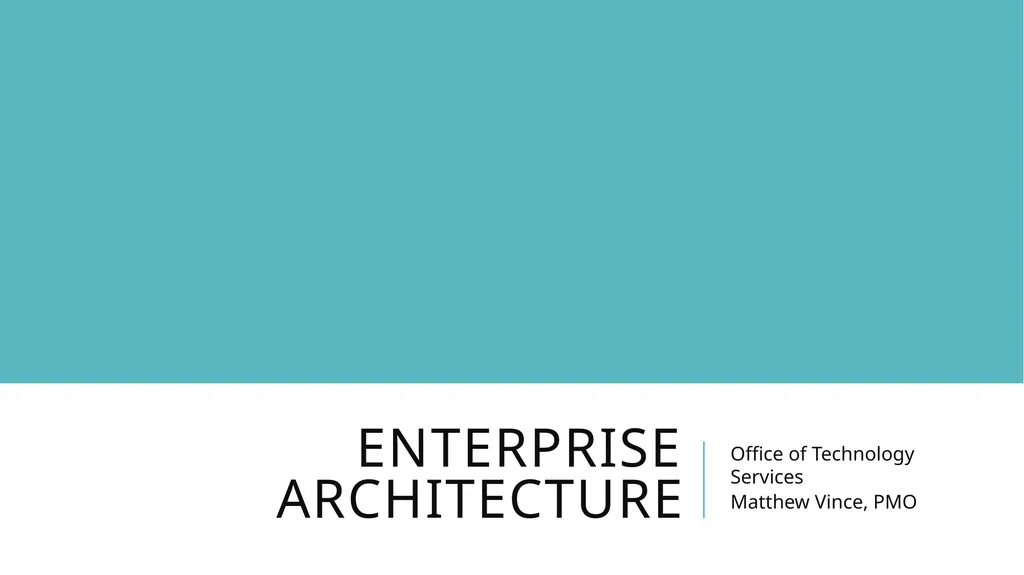
Enterprise Architecture Office of Technology
Author: pasty-toler | Published: 2025-07-18
Description: Enterprise Architecture Office of Technology Services Matthew Vince, PMO Overview What is Enterprise Architecture? Governance Technology Team Appendix What is Enterprise Architecture? Benefits Decreased time and cost for procurements with
Download Presentation
Download the PPT/PDF: Download
Transcript:
Loading transcript…